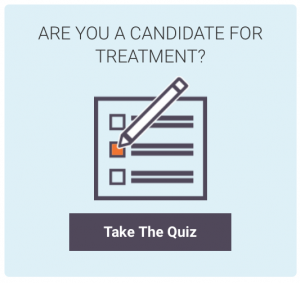
Can My Obstructive Sleep Apnea & Snoring Cause Long-Term Effects?
If you think you have sleep apnea, it’s important to have it diagnosed and treated in order to avoid developing one or more of the following long-term health issues.
Hypertension
People with sleep apnea have a higher risk of hypertension, or high blood pressure. In fact, roughly 50% of those with this sleep disorder have hypertension, according to the American Association for Respiratory Care. When you have high blood pressure, you also have an increased risk of having a stroke, heart problems and other serious health issues. These risks are even higher if you’re also obese.
Heart Disease
Sleep apnea can put you at a higher risk of developing heart disease, mainly due to its association with high blood pressure and obesity. Having hypertension and being obese are among the main risk factors for having heart disease, which is the leading cause of death in the US. Heart disease includes a wide range of cardiovascular conditions, such as heart failure and heart arrhythmias.
Stroke
Sleep apnea can increase your risk of having a stroke, which occurs when the blood supply to your brain is abruptly stopped. This causes brain cells to die due to a lack of oxygen, which can lead to partial paralysis, speech problems and other serious issues that can affect you on a long-term basis. Gender is also another factor to consider. The risk of having a stroke is up to three times higher in men with obstructive sleep apnea, according to the Mayo Clinic.
Diabetes
Having sleep apnea might also increase your chance of developing type 2 diabetes, a chronic condition that is associated with serious complications, such as heart failure and kidney failure. Up to 40% of those with obstructive sleep apnea are estimated to end up with diabetes, according to the International Diabetes Federation. Obesity, which is a common risk factor for sleep apnea, might be linked to the higher risk of diabetes. Researchers have also found that this sleep disorder could affect blood sugar control in those with type 2 diabetes, making it more difficult to manage this condition over time.
Mental Health Problems
Obstructive sleep apnea can also have long-term effects on your mental health, not just your physical well being. This sleep disorder might increase your risk of developing mood disorders, such as depression and anxiety. Studies have found that the frequency of anxiety and major depressive disorders in people with sleep apnea is higher than it is in the general population. Having a mood disorder can affect your quality of life overall and impact your physical health.
Personal Concerns
Sleep apnea can have an impact on every aspect of your life, which can end up having serious physical and emotional effects. You might have relationship problems if your snoring prevents your spouse or partner from getting a good night’s sleep, leading to stress-related health issues. If you deal with daytime drowsiness due to sleep apnea, your performance at work could suffer as well. Keep in mind that this drowsiness also raises your risk of having an accident at work or while driving, increasing your chance of being seriously injured.
Treatment Options
Being diagnosed with sleep apnea doesn’t necessarily mean you’ll end up developing long-term health problems. Treatment methods that help manage this condition can lower these risks; these include using a continuous positive airway pressure (CPAP) machine while sleeping, wearing an oral device at night or having surgery to stop your airway from becoming blocked while you sleep.
If you think you have obstructive sleep apnea, please contact eos sleep. Our Board Certified eos sleep physicians can help diagnose and treat your sleep disorder so you can lower your risk of long-term health effects.
Sleep specialists use different methods to evaluate their patient’s level of risk for sleep apnea. One of the most popular is the Berlin Scale. This is a universal evaluation tool used around the USA. Take the Berlin Quiz now:

